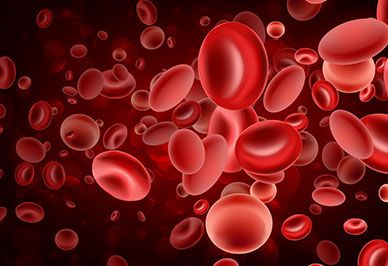
Dr. Ajay Narayan Sharma
Pediatric Hemato-oncologist & BMT Physician

Pediatric Hemato-oncologist & BMT Physician

Pediatric benign hematology refers to the branch of medicine that focuses on the diagnosis, treatment, and management of non-malignant blood disorders in children. These disorders are usually characterized by abnormalities in the production or function of blood cells, but they are not cancerous.
Anemia is a condition characterized by a decrease in the number of red blood cells or a decrease in the amount of hemoglobin in the blood. This can lead to symptoms such as fatigue, pale skin, and shortness of breath. Anemia can be caused by various factors, including nutritional deficiencies, genetic disorders, and chronic diseases.
Thrombocytopenia is a condition characterized by a decrease in the number of platelets in the blood. Platelets are necessary for blood clotting, and low platelet counts can lead to increased bleeding and bruising. Thrombocytopenia can be inherited or acquired and may be associated with other underlying medical conditions.
Hemophilia is a genetic disorder that affects the body's ability to form blood clots. This leads to prolonged bleeding and difficulty in stopping bleeding after an injury. Hemophilia is typically caused by a deficiency in specific clotting factors and is classified into different types based on the specific factor affected. Sickle cell disease: Sickle cell disease is an inherited blood disorder that affects the structure and function of red blood cells. The abnormal sickle-shaped red blood cells can cause blockages in blood vessels, leading to episodes of pain, organ damage, and other complications. Sickle cell disease primarily affects individuals of African, Mediterranean, Middle Eastern, and Indian descent.
Thalassemia is a group of inherited blood disorders characterized by an abnormal production of hemoglobin, the protein responsible for carrying oxygen in red blood cells. Individuals with thalassemia may have mild to severe anemia and may require frequent blood transfusions or other forms of treatment.
In the field of pediatric benign hematology, healthcare providers work closely with children and their families to diagnose and manage these blood disorders. Treatment options may include medications, blood transfusions, supportive care, and, in some cases, stem cell transplantation.
Regular monitoring and follow-up visits are crucial to ensure adequate management of these disorders and to address any complications that may arise. Additionally, genetic counseling may be offered to families to discuss potential risks for future children and to provide guidance on family planning
Overall, pediatric benign hematology plays a vital role in promoting the health and well-being of children with non-malignant blood disorders. Through early detection, proper diagnosis, and appropriate treatment, children can lead fulfilling lives and effectively manage their conditions.